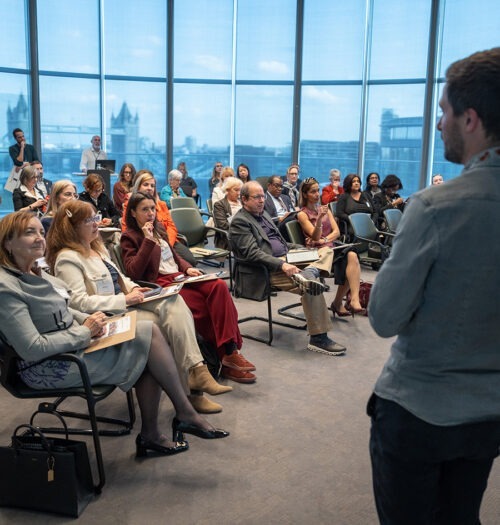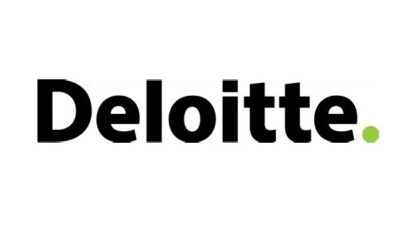
Oliver Wyman Masterclass #3: Beyond the boardroom
Key takeaways:
- Placing shareholder value, commercial opportunity, and business growth as the drivers of climate transition planning helps ensure that climate remains a core business priority despite shifts in the operating context.
- On-the-ground engagement with employees, suppliers, communities, investors, and customers is essential to activate climate transition plans.
- In a consistently shifting external environment, scenario analysis can help NEDs understand key dependencies and plan effectively for different futures.
- The transition of an organisation needs to be considered as a change programme. Approach it with a nimble, people-centred strategy that integrates across your business processes and systems.
- Identifying and addressing policy dependencies in transition plans is an underdeveloped area where NEDs can provide challenge and guidance, with scenario analysis again a useful tool.
Download the full summary
You can share the event summary with your fellow board members and colleagues by inviting them to join Chapter Zero, sharing the webpage link with them, and downloading the designed resource here.
Oliver Wyman Masterclass #3: Beyond the boardroom - Event summaryClimate change and decarbonization: A global perspective
We explored climate change and decarbonisation from a global perspective with Sir Mark Tucker, Supporting Chair of Chapter Zero, Chair of HSBC plc, and Chair of the Discovery Group of South Africa. Our discussions focused on navigating a complex and evolving geopolitical landscape as well as engaging with stakeholders to develop and implement transition plans.
The following summarises the general learnings from the overall conversation with NEDs in the room:
- Anchoring the transition in risks and opportunities: In particular, thinking about how to transition and contribute to transition in the wider economy can catalyse innovation and lead to new products and new business models.
- Commitment to customer transition: Anchor climate transition plans in supporting your customers' needs and their transitions.
- Geopolitical and geoeconomic complexity: The ever-changing geopolitical environment introduces additional complexity in transition planning. Expect non-linear progress, and leverage the latest scientific evidence, peer and expert networks to examine your plan and maintain momentum.
- Set your board up for success: Recognise that developing a transition plan is a material time commitment, including for board members. Consider if you need to set up a dedicated working group and board level "sounding boards", leverage internal and external experts and expect an iterative review and challenge process.
- Be open to collaboration and feedback: Listen to customer and investor feedback, participate in peer initiatives to discuss industry standards, facilitate investment in climate solutions, and engage with NGOs. Consider the role of your organisation in the wider ecosystem and where collaboration and partnerships can amplify impact and accelerate progress.
- Dynamic approach: Continuously evolve your thinking, approaches, and plans to reflect the latest scientific evidence.
Engaging beyond the boardroom
The stakeholder landscape beyond the boardroom is vast, and engaging in the broader ecosystem is key for transition planning to be successful. We took a deep dive into the engagement of various stakeholder groups, surfacing a series of key considerations:
Deep Dive 1. Organisational alignment
Engaging Executives, senior leaders and employees in climate transition planning is important not only because prioritising sustainability helps to attract and retain top talent. Climate transition can require complex transformation and the number of transformations that fail to reach all objectives has risen to a staggering 81%. Harnessing the ideas and commitment of the workforce will increase the likelihood of successful design and implementation.
We considered three dimensions to managing organisational alignment:
- Frame the future by creating leadership alignment, engaging employees at scale, and developing a compelling narrative around transition plans.
- Build the movement by involving business leaders in the development of implementation plans, shifting culture amongst employees and connecting with grassroots champions.
- Sustain momentum by integrating the transition plan into business processes, aligning incentives and performance management, and building plans to address skill and competency gaps.
We explored what works well in practice, including working ESG committee meetings with business involvement, engaging all employees to address challenges and opportunities of decarbonization (e.g. in product design) and NEDs responsible for workforce ‘walking the floor’ to gauge organizational alignment.
Deep Dive 2. Investors and transition finance
We are seeing mixed investor sentiment driven by shifting concerns about physical, transition, and political risks.
- Navigate a rapidly evolving transition finance landscape: In this evolving landscape, some companies are reinforcing their commitments while others are softening their climate goals due to investor pressure.
- Engage with investors and harness transition plans: Achieved through direct investor engagement and by rigorously challenging transition plans to ensure they are credible and deliverable.
- Understand your investors: Investors are not a homogenous group and their perspective will be influenced by their definition of value and their investment time-horizon.
- Foster partnerships: NEDs have the opportunity to foster partnerships between investment firms and real economy companies to drive innovation.
- Deploy transition finance strategies: Key strategies for transition finance include financing entities and activities that develop or scale climate solutions, supporting those aligned with a 1.5°C pathway, and accelerating the managed phase-out of high-emitting assets.
Deep Dive 3. Understanding and informing policy
NEDs play a crucial role in challenging and supporting their companies to engage with policymakers, addressing barriers and accelerating progress in a complex and changing policy
environment.
- Oversee responsible policy engagement: Engaging on policy barriers and enablers in transition plans can help to unlock progress, so overseeing this strategic activity is a core responsibility of the company board.
- Consider the private sector role: Companies can engage in policy by collaborating on policy development, addressing implementation barriers, and partnering to scale solutions.
- Understand the benefits of engagement: Engaging in policy development can help organisations inform policies that support the successful delivery of transition plans, while also providing better visibility of the evolving policy landscape.
- Make the most of your NED role: NEDs are well positioned to challenge executives to identify and engage on key policy dependencies in transition plans, and capture opportunities to join public-private initiatives focussed on co-creating solutions.
- Inform the set-up of public support mechanisms: NEDs should stay informed and encourage direct involvement in informing climate-focused financing vehicles and other policy solutions.
Relying on government commitments is currently challenging. As NEDs, we must help our companies manage the risks of changing or reversed policies.
- NED attendee
Further resources and learnings for non-executive directors
| Supply chain risk | Sentrisk: achieve breakthrough risk outcomes |
| Adaptation and nature | How a holistic risk approach increases resilience
Embracing nature: how businesses can engage with new environmental imperatives Staying above water: a systemic response to rising flood risk |
| Physical risk and resilience | Global climate resilience and adaptation hub |
| Insurance in the climate space | Climate and sustainability embedded within insurer's underwriting frameworks |
| Engaging customers in the transition | Make climate meaningful |
Explore our transition planning materials and extra recommended reading



